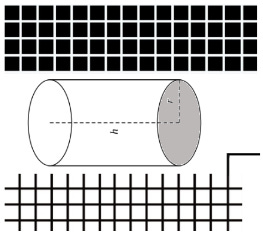🌞SOLARCORE Newsflash III🌞

Greetings, curious creatures!
This is Autofrahn. I have an anecdote to tell you that might enlighten your path towards the Sun Age. Our appreciated golden cult member Mark de Boorder inhabits a little piece of Arcadia in the middle of a Dutch cosmopolis. On a recent evening, he seated me on his balcony that hangs amid ancient trees. He served a selection of the finest specialty beers with sun-mythology-themed labels: one even had a photograph of a solar flare. As our meeting was slightly solarcore cult related, at a certain point a Socratic dialogue emerged, which left me feeling like an actual guru for the first time. It felt uncomfortable as I am only a humble herald of the shiny Sun Age.
Nevertheless, it is reassuring that ‘Solarcore’ might be the answer to all the ‘Frequently Asked Questions’ of the current condition humaine. I heavily edited my memories of this conversation, adding extra insights and enhancing the guru-questioner dynamic for comical effect.
Q: So what is it actually like, in terms of enjoyment, the post-fossil future we are heading towards?
A: It’s abundant, almost excessively hedonistic. Just imagine what you can do when energy doesn’t have to be drawn from the depths of the earth but comes easily from the sky, through circular, glittery blue panels. You could take hot showers until you are completely wrinkly…
Q: Turn the lights on and off, like a disco strobe? The things your parents never allowed you to do?
A: Turn the lights on before leaving the house, even.
Q: Or baking unlimited amounts of frikandellen (a Dutch type of surplus-meat sausage) in a deep fryer and end world hunger.
A: The possibilities are endless. We might as well eat vegadellen (vegetarian frikandellen). In this way, humanity could reclaim all of the fields that are now reserved for farm-animals and their foods. We can use the fields to grow flax and grapes: everyone would always wear tailored suits of the best linen and drink champagne all day. A much nicer form of daily hedonism than meat consumption, if you ask me.

In this lovely future, once a year we will bake a holy frikandel to remember the days in which eating animals was a common practice. On winter Solstice, an exquisitely spoilt, flower-decorated bull, fed during his life on asparagus (the white gold), is ritually slaughtered with a silver sword. As an outlet for cruelty tendencies, to enhance a sense of community and for entertainment purposes.
The meat of the sacrificial bull is then carried in a golden shrine to a solar panel adorned temple in which an enormous deep fryer is located. It’s treated as some kind of sacred fire of Vesta: specially trained priests are appointed to refresh sunflower oil and make sure the fryer is kept at a continuous 180 degrees Celsius. Following some more rituals, the best cooks prepare one giant frikandel with the meat and we all sit in a room adjoining the temple-kitchen to smell the nostalgic scents of the preparation, without dinner ever being served.
We would be like Cyrano de Bergerac’s Moon-inhabitants. Or like Karl Lagerfeld who only sniffed the perfume of his beloved chocolate for most of his life, instead of eating it. It’s a much more refined way of enjoyment: cultivating desire, not satisfaction.
We sit silent for a while, drinking, staring at the cosmic spectacle that starts to unfold before us, as the Sun has set on the balcony.
Q: Speaking about endless possibilities. Some space-minded billionaires would say: why bother to transition this planet towards a new hedonism when the Universe has other planets that can be harvested for their opulence.
A: Asteroid mining could be interesting for sourcing specific metals and minerals. But moving to a ‘Planet B’… not so much. You might have heard of the astrophysicist Nikolai Kardashev? I was introduced to him by the other solarcore-herald Luuk Dolfijn.
Kardashev was interested in the existence of, and possible communication with extraterrestrials. He invented a cosmic scale, named after himself, to rank civilizations, based on the way they generate energy. A ‘Type 1’ civilization (the most basic one) is able to extract all energy from its home planet. Human civilization almost reached this level, but finds itself stuck. Our current fossil technology departs from a single-use-philosophy: when all the oil is gone, we will regress, massively.
If we would succeed in finding an inhabitable planet in space while having a record of mismanaging our own, the aliens (in the case of Mars: frozen or fossilized micro-organisms) would just laugh us in the face. Violent colonization would then still be an option (it has proven to be a default reaction for some upon encountering more advanced beings), but this would only confirm the reputation of humans as the Backward Barbarians of the Universe, driven by a desperate survival instinct.
It might be a better idea to advance towards a Kardashev’s ‘Type 2’ civilization straight away: one that is able to use all the energy from its closest star. In our case, the Sun. I’d say we could have a very comfortable and more honourable existence if we succeed in only using a little bit more of the sun’s energy. Solar-powered UFO's could be invented and we could engage in low-budget space tourism.
(Those interested could listen to Big Hare’s hymn K-FORMULA which is based on Kardashev’s cosmic scale)
Q: Are you not afraid of accusations of hybris? Wouldn’t it be more wise for the human species to be more humble, instead of embarking on another grandiose adventure?
A: We can’t. We must progress.
Q: As the mythic Icarus flew too close towards the Sun, his fabricated wings melted and he fell into the sea. Could you come up with an alternative reading of this moralistic tale that is so deeply engraved in human thinking?
A: His wings were made of wax! What was categorized as ‘hybris’ by the ancients, I would call curiosity. He experimented and he failed: I would call him a scientific hero, maybe even a martyr. Since then, humanity has learned to fly, despite the story of Icarus and its re-inventions that work to conceal and restrict desires and dreams.
Q: The historical influence of traditional christian morality, you mean?
Yes, but in modern ecological thinking there are also a lot of those Icaresque stories. For example the suggestion that we live in ‘the Anthropocene’, popularized by Timothy Morton: a geological age thoroughly influenced by humans. Some enthusiasts of this time-categorisation mark the invention of agriculture, ten thousand years ago, as the start of an inherently erratic human ego-project. How can we ever come to terms with such a deep and age-old guilt-trip? It’s impossible to just go ‘back to nature’: inventing new things seems to be part of human ‘nature’.
The ‘hybris’-way of thinking is also present among people who unnecessarily cling to outdated fossil technology. They claim that every new idea to replace it is ‘too expensive’ or ‘unfeasible’, or ‘innefficient’ or even ‘elitist’: unable to admit that the Fossil Age is indeed a failure. Like wings of wax, mass usage of kerosine-powered aeroplanes makes us end up drowning. We need to move on. But there is nothing wrong with the desire to fly like a bird! The key take-away from Icarus’ story is: continue on the path of trial and error until you find something that works.
Q: Thank you, wise guru!
A: Please… I am only a humble herald. Thanks for sharing drinks and for thought synthesis.
The herald staggers off the stage, slightly intoxicated.
If this anecdote did nót enlighten your path towards the Sun Age, please let me know.
Best Regards, Autofrahn (on behalf of Luuk Dolfijn)
P.S. Don't forget to come to our ritual on October 22!


